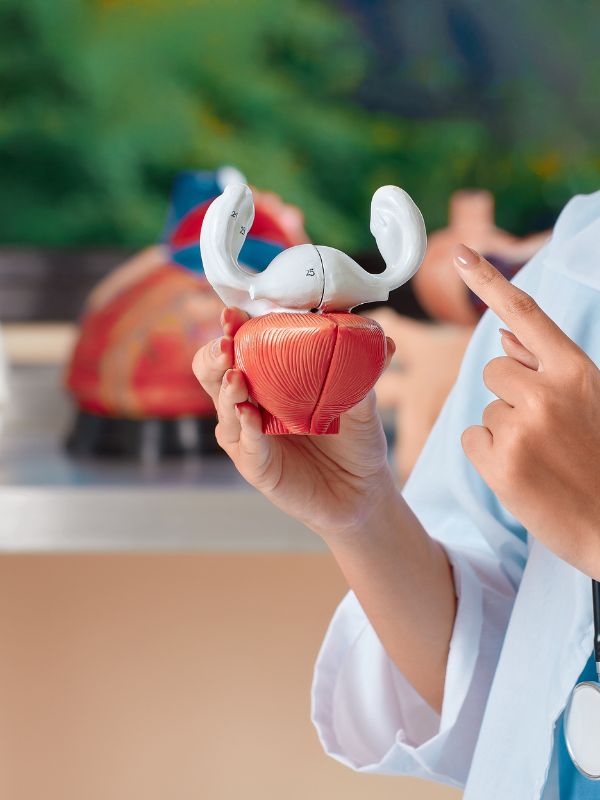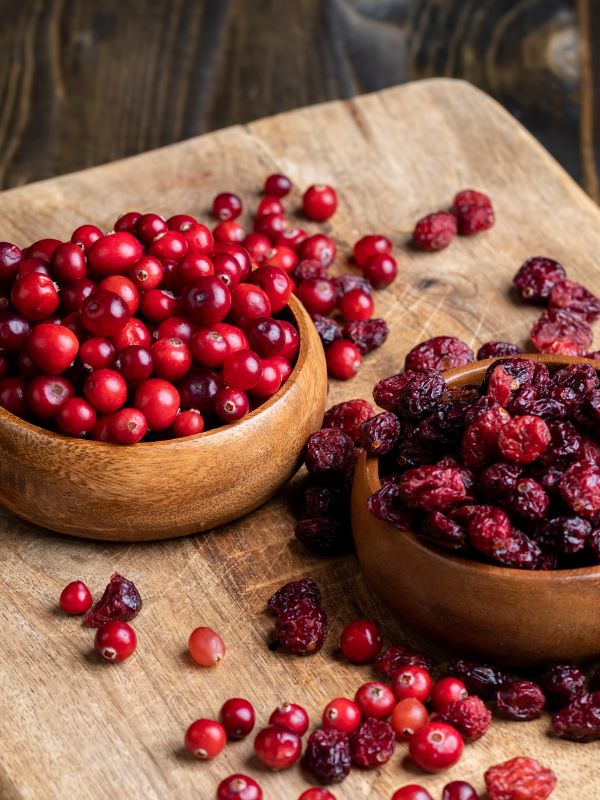Do you suffer from frequent urinary tract infections (UTIs)? If so, you know how frustrating and painful they can be. Burning sensations, frequent urges to urinate, and discomfort can make everyday life unbearable.
Cranberries have long been used as a natural solution for urinary tract infections. Packed with proanthocyanidins (PACs), antioxidants, and vitamin C, cranberries help prevent bacteria from sticking to the urinary tract walls, reducing the risk of infection.
In this article, we’ll explore the science-backed benefits of cranberries for urinary infections, how to use them effectively, and important precautions to keep in mind.
#1. Prevents Bacteria from Sticking to the Urinary Tract
One of the biggest reasons cranberries are linked to UTI prevention is their high content of proanthocyanidins (PACs). These natural compounds prevent E. coli bacteria, the main cause of UTIs, from attaching to the walls of the bladder and urinary tract.
A study published in The American Journal of Clinical Nutrition found that women who drank cranberry juice daily had a significantly lower risk of recurrent UTIs.
PACs create a “slippery” effect on the urinary tract lining, making it harder for bacteria to multiply and cause infection.

#2. Acts as a Natural Antibacterial Agent
Cranberries contain natural antibacterial properties that help the body fight infections.
The high acidity of cranberries makes the urine slightly more acidic, creating a less favorable environment for bacteria to thrive.
According to research in Frontiers in Microbiology, cranberry extract has shown antibacterial activity against UTI-causing bacteria.
#3. Supports Bladder Health and Reduces Inflammation
Chronic UTIs can cause irritation, inflammation, and long-term bladder issues. The antioxidants in cranberries, including flavonoids and vitamin C, help reduce inflammation and promote overall bladder health.
A study published in Phytomedicine found that cranberries help soothe bladder irritation and may reduce the risk of interstitial cystitis, a chronic bladder condition.
The anti-inflammatory compounds help repair damaged bladder tissues, promoting long-term urinary health. Regular cranberry consumption can keep your bladder healthy and resilient against future infections.

#4. Rich in Vitamin C for Immune Support
Cranberries are an excellent source of vitamin C, an essential nutrient for boosting the immune system and fighting infections.
100 grams of cranberries provide about 13.3 mg of vitamin C, which strengthens immune defenses. A strong immune system helps your body fight off bacteria before they can cause a full-blown UTI.
#5. Reduces the Need for Frequent Antibiotic Use
Frequent UTIs often lead to repeated antibiotic use, which can cause antibiotic resistance and disrupt gut health. Cranberries offer a natural alternative to help prevent UTIs before they require antibiotics.
A review in Cochrane Database of Systematic Reviews found that cranberry supplements reduced the frequency of UTIs in women who frequently experience infections.
If you experience recurrent UTIs, cranberries may help reduce your dependence on antibiotics over time.

How to Use Cranberries for Urinary Tract Health
1. Cranberry Juice (Best for Prevention and Hydration)
First, you’ll need 1 cup of unsweetened cranberry juice. It’s important to avoid sugar-filled varieties, as these can actually worsen the situation. Next, you just need 1–2 cups of water.
To get the best results, drink 1–2 cups of cranberry juice daily. However, to avoid excess acidity, you should mix it with water or herbal tea.

2. Cranberry Supplements (For a More Concentrated Dose)
If you prefer a more concentrated dose, you can use cranberry supplements. You’ll need cranberry extract or capsules. When choosing a supplement, look for products with at least 36 mg of PACs per serving.
You should take one supplement daily, especially if you are prone to recurrent UTIs. Furthermore, it’s crucial to choose high-quality, standardized supplements to ensure effectiveness.

3. Fresh or Dried Cranberries (For Daily Consumption)
You need ½ cup of fresh or dried cranberries. Once you have your cranberries, you can add them to smoothies, salads, or oatmeal for a nutritional boost.
Alternatively, you can eat a handful of dried cranberries daily for long-term urinary health support.

Cautions and Precautions
People with kidney stones should limit cranberry intake because cranberries contain oxalates, which can contribute to stone formation.
If you are on blood-thinning medication (like Warfarin), consult a doctor before using cranberries, as they can slightly enhance blood-thinning effects.
Avoid cranberry juice with added sugars, as it may lead to high-calorie intake and negate health benefits. Moderation is key so stick to recommended daily amounts to maximize benefits while avoiding unwanted side effects.
Disclaimer
This article is for informational purposes only and is not a substitute for medical advice. If you have chronic UTIs or underlying health conditions, consult a healthcare professional before using cranberries as a remedy.

Why Are Doctors Recommending Cranberries for Urinary Tract Health?
